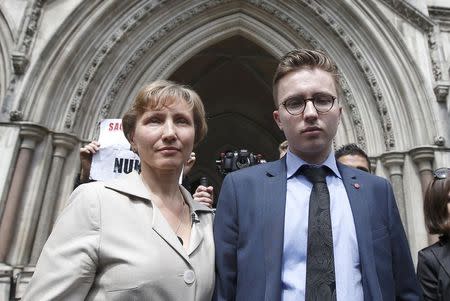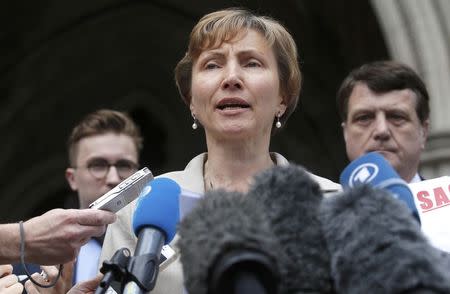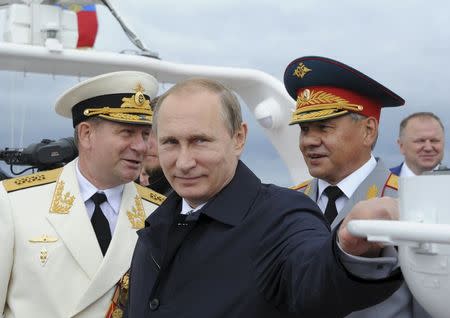Russia's 'tin pot despot' Putin ordered spy's London murder, UK inquiry told
By Michael Holden LONDON (Reuters) - Russian President Vladimir Putin is a "tin pot despot" who personally ordered the 2006 poisoning murder of ex-KGB agent Alexander Litvinenko in London, the lawyer for his widow said on Friday. Kremlin critic Litvinenko, 43, died three weeks after drinking green tea laced with radioactive polonium-210 at London's plush Millennium Hotel, shortly after obtaining British citizenship. British authorities say there is evidence to try Russian suspects Andrei Lugovoy and Dmitry Kovtun for murder. From his deathbed, Litvinenko accused Putin of ordering his killing. Both Russians deny the charge and the Kremlin has rejected any involvement, dismissing the validity of the British inquiry into Litvinenko's death that caused Anglo-Russian relations to sink to a post-Cold War low. On the closing day of the inquiry that began in January, Ben Emmerson, lawyer for Litvinenko's widow Marina, listed several reasons he said pointed to Russian responsibility for Litvinenko's death. Polonium is rare and nearly exclusively made in Russia, which has a history of political assassinations, he said. Lugovoy had contact with corrupt Kremlin figures, he said, and launched a political career as a Russian parliamentarian after the murder. He and Kovtun also had no personal motive for killing his client. Emmerson said Litvinenko, who the inquiry was told was working for British security services, produced diligence reports for western companies that linked Putin and his associates to criminal gangs. These had led to deals being cancelled, he said. Litvinenko had also passed some of them to Lugovoy, whom he trusted as a businessman. POLONIUM TRAIL "If the Russian state is responsible, Putin is responsible," Emmerson said. "He personally ordered the liquidation of an enemy who was bent on exposing him and his cronies." Russia has accused the inquiry of showing disregard for international as well as Russian laws Emmerson said scientific evidence linking Kovtun and Lugovoy to traces of polonium detected around London proved beyond doubt that they were responsible. Tests of the sink in the bathroom of Kovtun's room at the Millennium Hotel revealed quantities of polonium that could only be achieved by direct contact with the rare isotope. Emmerson said that on the day in March when the inquiry heard evidence he argued clearly showed Kovtun's involvement, Putin awarded Lugovoy a medal of honour for services to the Motherland. It was part of Moscow's attempts to manipulate and intimidate the inquiry, he said. "It was a crass and clumsy gesture from an increasingly isolated tin pot despot, a morally deranged authoritarian," he said, referring to Putin. Marina Litvinenko, who pressured Britain into holding the inquiry that will report its findings before Christmas, said the truth had finally been uncovered. "My husband was killed by agents of the Russian state in the first ever act of nuclear terrorism on the streets of London and this could not have happened without the knowledge and consent of Mr Putin," she told reporters. (Additional reporting by Gabriela Baczynska in Moscow; Editing by Tom Heneghan)

 Yahoo News
Yahoo News 



